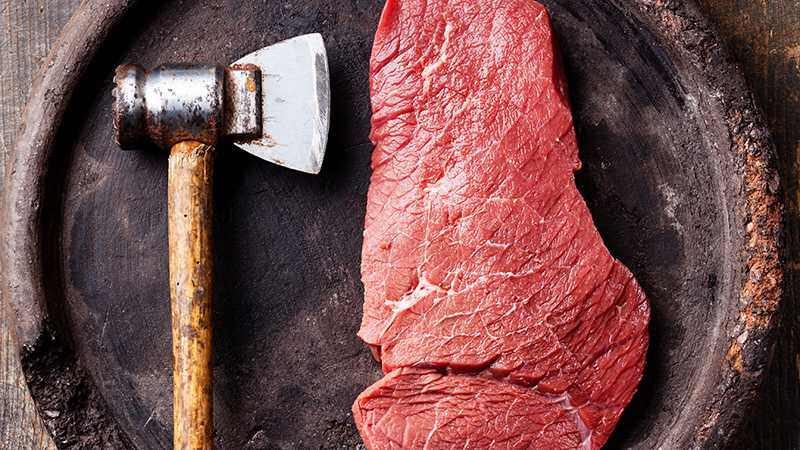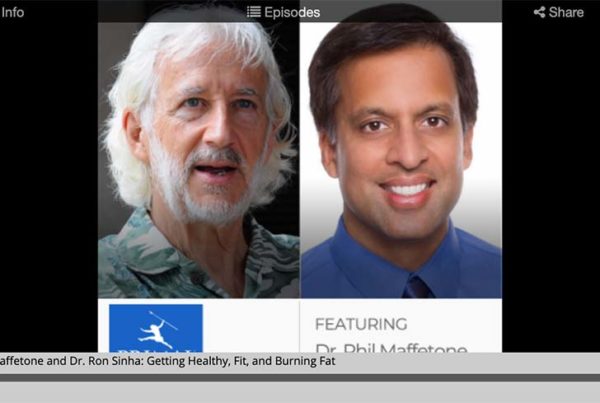
A World Health Organization report contains nothing new: Don’t eat processed meats because they contain cancer-causing chemicals. Red meat may be dangerous, too, when overcooked.
Last week the International Agency for Research on Cancer (IARC), part of the World Health Organization, published an analysis linking colorectal cancer to the consumption of processed meat. They also said the risk “probably” exists for red meat; however, the risk is not from eating the meat but cooking it too much.
Healthy consumers need not be concerned about the IARC report. Healthy people avoid junk food, ensuring processed meats stay out of our diets. And by eating adequate vegetables and other natural foods (including naturally unprocessed meats) full of antioxidants and other phytonutrients, we can counter the effects of cooking natural meats, especially if we avoid overcooking and burning.
The IARC report was based on population studies over the past 20 years. Applying these studies in real life poses a problem for two reasons:
- Only recently have studies made the distinction between processed and natural meat. The IARC report separates processed meats, moving them into a high-risk cancer category.
- None of these studies are applicable to one individual, especially those of us who choose a balanced diet, exercise and follow healthy lifestyles.
The IARC report states, “Processed meat was classified as carcinogenic to humans (Group 1), based on sufficient evidence in humans that the consumption of processed meat causes colorectal cancer.”
Healthy meats, however, are in a lower risk category “based on limited evidence” according to the IARC report. These meats don’t directly cause cancer, but only when they are cooked. Burning meats, such as during grilling, can produce cancer-causing chemicals but these can be significantly reduced by turning meats frequently, avoiding burning and cooking until well-done, and eating phytonutrient-rich foods (such as broccoli and other nutrient-dense vegetables) to destroy these chemicals.
The media frenzy against meat-eating has been ongoing, much like the anti-fat crusade. Yet they don’t make as much a fuss over the facts regarding refined carbohydrates, including sugar, and its relation to much higher levels of chronic disease. Additionally, overcooking carbohydrates also produces cancer-causing substances called acrylamides. We never hear much about this in the media, but it is true.
The new IARC report did not make any recommendations, but I will: Eat a balanced diet high in vegetables, containing meat, eggs and other healthy proteins, and healthy fats, while avoiding all junk food.
Let’s look at comments in the IARC report:
- Processed meats like hot dogs and sausages have added chemicals. Scientists have long worried that this chemical processing leads to the formation of potentially carcinogenic chemicals like polycyclic aromatic hydrocarbons in these products.
- The concern with natural, unprocessed meats has more to do with grilling, barbecuing and pan-frying meat, which creates potential carcinogens such heterocyclic aromatic amines.
- The report finds a link between consumption of processed meats and colorectal cancer (and perhaps other cancers), but also acknowledged that the link between red meat and cancer has not been proved.
- The reports acknowledged that it is not known whether red meat causes cancer: “Eating red meat has not yet been established as a cause of cancer,” the IARC stated in a handout accompanying its report.
Of course, we can eat too much of a good thing. The average American eats more than 70 pounds of meat per year — clearly this is associated with a diet without balance mostly because the majority of this meat is processed. Making the switch to natural meats with a lot of vegetables, nuts and seeds, healthy fats and other aspects of a balanced diet, and more than adequate nutrition follows.
Good logic is important to balance media hysteria.
Bonnie Liebman, nutrition director for the Center for Science in the Public Interest, said of the IARC report on NBCnews.com “Bottom line: Eat less and better meat. Better for you, better for the planet.”
As part of a balanced diet, healthy meat can actually help stave off cancer. Christopher Wild, Director of IARC, agreed that despite their report, “At the same time, red meat has nutritional value.”
The most important messages people should take from the IARC report:
- Avoid junk food meat.
- Eat a balanced diet void of other junk food.
- Don’t give up eating properly cooked healthy meat because it provides so many benefits.
- Processed meats, of course, include virtually all those found in fast food restaurants, pre-made burgers, sausages, hot dogs, deli meats, and similar items. As reported by CNN, a study from Clear Labs found 10 percent of vegetarian hot dogs contain meat.
Healthy people know to avoid processed meats and other junk food, but consumers are too often duped into buying unhealthy meats because they are labeled as natural, organic or found in health-food stores. Consumer beware.
No doubt processed meats are unhealthy choices. They are in the category of junk food. Just look at the labels and you’ll see the long list of ingredients often hard to pronounce, let alone knowing what these chemicals are, including sugar. Almost all the meat in fast-food restaurants is also dangerous, especially ground meats which often have fillers (especially flour), sugar, artificial preservatives, coloring and other unwanted chemicals.
Meanwhile, there is a lack of scientific consensus on eating healthy meat — those items include real pieces of beef, lamb, pork and other foods that have not been processed with chemicals.
While there are no scientific recommendations that people avoid eating healthy meat, there are warnings to avoid eating many types of fish and seafood as water pollution has become a major health concern.
And by the way, being overweight, using tobacco and consuming alcohol beyond moderation increases the risk of colorectal cancer much more significantly than does processed meat.








